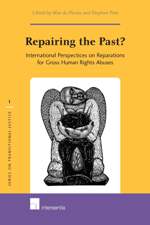
Source: Intersentia
Countries emerging from long periods of authoritarian rule must often confront a legacy of gross human rights abuses perpetrated over many years. During the past two decades, these age-old issues have been termed “problems of transitional justice”, both by academics and policy makers around the world. Given the frequency with which these problems arise, as well as the complexity of the issues involved, it is striking that no book series has taken the issue of transitional justice as its point of focus. This new Series on Transitional Justice aims to fill this gap.
The Series on Transitional Justice offers a platform for high-quality research within the rapidly growing field of transitional justice. The research will, of necessity, be inter-disciplinary in nature, drawing from disciplines such as law, political science, history, sociology, criminology, anthropology and psychology, as well as from various specialised fields of study such as human rights, victimology and peace studies. Furthermore, the research will be international in outlook drawing on the knowledge and experience of academics and other specialists in many different regions of the world.
The series is aimed at a variety of audiences who are either working or interested in fields such as crime and justice; human rights; humanitarian law and human security; conflict resolution and peace building. These audiences may include academics, researchers, students, policy makers, practitioners, non-governmental organisations and the media.
Editorial board:
– Prof. S. Parmentier (University of Leuven, Belgium)
– Prof. Elmar Weitekamp (University of Tübingen, Germany) and
– Prof. Jeremy Sarkin (University of South Africa).

